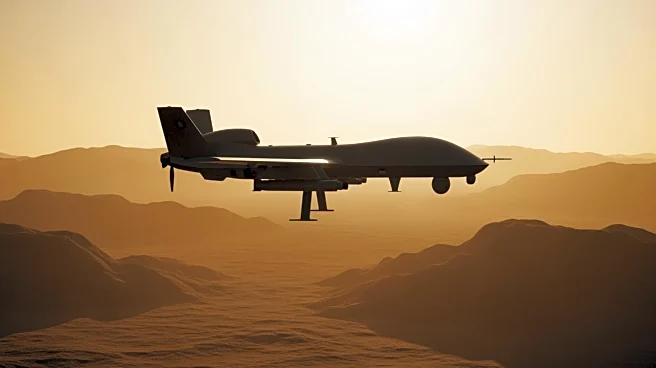What's Happening?
Israeli Prime Minister Benjamin Netanyahu has issued a stern warning to Hamas, stating that disarmament is essential to prevent further escalation in the ongoing conflict in Gaza. In an interview with CBS Mornings co-host Tony Dokoupil, Netanyahu emphasized the importance of Hamas complying with the conditions set forth in President Trump's 20-point plan aimed at ending the war in Gaza. The plan outlines various measures to stabilize the region, but Netanyahu highlighted that the disarmament of Hamas is a critical component for moving forward. The interview is part of a broader discussion on the fragile peace deal between Israel and Hamas, which has seen intermittent violence and diplomatic challenges.
Why It's Important?
The demand for Hamas to disarm is a pivotal issue in the Israeli-Palestinian conflict, with significant implications for regional stability. Netanyahu's insistence on disarmament underscores the Israeli government's stance on security and its approach to peace negotiations. The disarmament of Hamas could lead to a reduction in hostilities and pave the way for more comprehensive peace talks. However, it also poses challenges, as Hamas may resist such demands, potentially leading to further conflict. The situation affects not only the immediate region but also international relations, as countries like the United States play a role in mediating and supporting peace efforts.
What's Next?
The next steps in the peace process will likely involve continued diplomatic efforts to address the disarmament issue. Netanyahu's comments suggest that Israel will maintain pressure on Hamas to comply with the disarmament condition. The international community, including the United States, may increase diplomatic engagement to facilitate negotiations and ensure adherence to the peace plan. Observers will be watching closely to see if Hamas responds to these demands and how this will impact the broader peace efforts in the region.
Beyond the Headlines
The call for disarmament raises deeper questions about the balance between security and sovereignty in conflict resolution. It highlights the complexities of negotiating peace in a region with deep-seated historical tensions. The ethical implications of disarmament, including the rights of groups to self-defense and the role of international law, are significant considerations. Long-term shifts in regional power dynamics could be influenced by how this issue is resolved, affecting future peace and stability in the Middle East.










